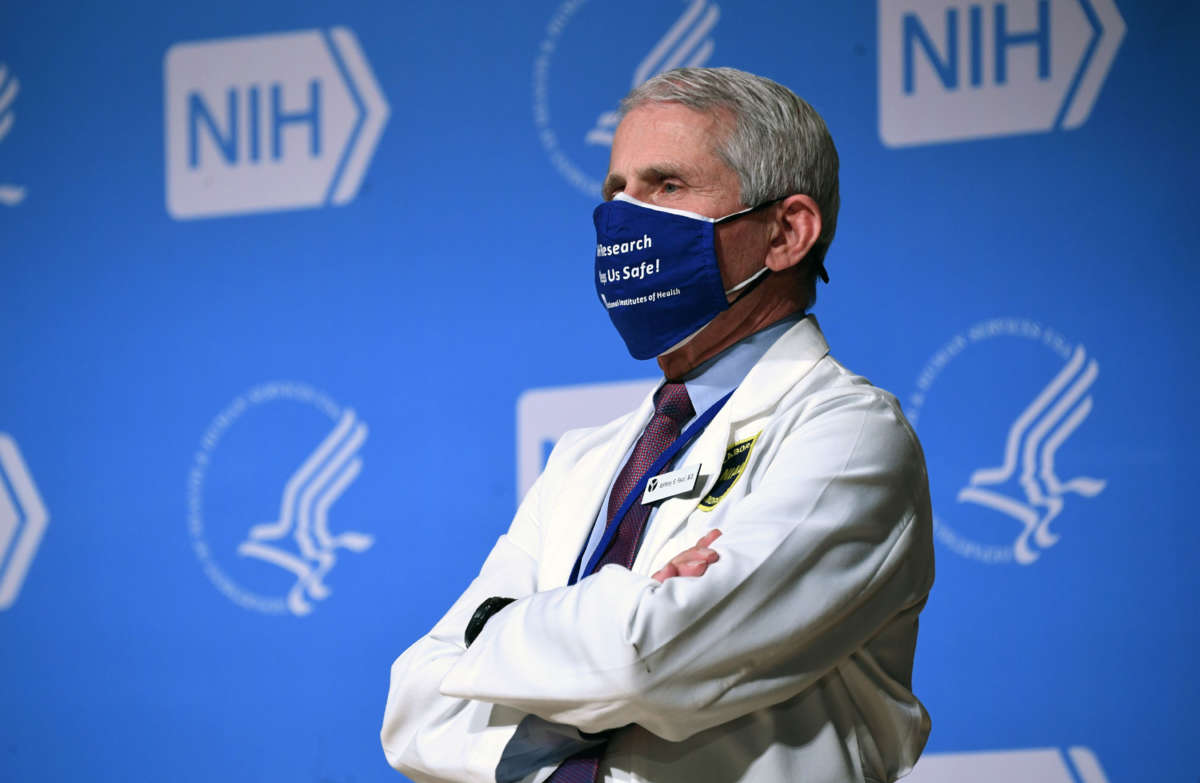On Thursday, Dr. Anthony Fauci, the longtime director of the National Institute of Allergy and Infectious Diseases, delivered hopeful news about vaccine availability and the country’s lagging roll-out. On NBC’s “Today” show, echoing remarks from earlier in the day, Fauci said there could be an “open season” on available vaccine doses by April.
“By the time we get to April, that will be what I would call, for better wording, ‘open season,’ namely, virtually everybody and anybody in any category could start to get vaccinated,” Fauci said. “From then on, it would likely take several more months just logistically to get the vaccine into people’s arms, so that hopefully as we get into the middle and end of the summer, we could have accomplished the goal of what we’re talking about — namely the overwhelming majority of people in this country having gotten vaccinated.”
The news coincides with the Biden administration’s announcement that they’ve purchased another 200 million doses of the two coronavirus vaccines, increasing supply by 50 percent to a total of 600 million doses. Securing these additional vaccines means that by the end of July, everyone eligible for inoculation is covered. As previously reported by the New York Times, the Trump administration passed up an offer to purchase Pfizer’s coronavirus vaccine beyond the initial 100 million doses. President Joe Biden previously stated that a lack of vaccines was in part to blame for America’s slow vaccine roll-out.
On Thursday, Fauci said Americans can expect vaccinations to “pick up” very soon. Currently, eligibility for the COVID-19 varies in each state and county, prioritizing frontline workers, and people over the age of 65 who are considered to have a higher risk of have severe disease outcomes.
“If you look at what’s going to happen as we get into March and April the number of available doses will allow for much more of a mass vaccination approach, which is really much more accelerated than what you’re seeing now,” Fauci said. “If you compare now to what we were doing just literally a month ago, the escalation has really been considerable.”
According to the Centers for Disease Control and Prevention (CDC), 46.3 million doses have been administered; 34.7 million Americans have received the first dose, and nearly 11.2 million people have received both doses. The population of the United States is about 331 million; experts believe that 80 to 90% of the population must be vaccinated, or immune to coronavirus due to prior infection, in order for herd immunity to be achieved.
Notably, there’s no estimated timeline for when children under the age of 16 can receive a COVID-19 vaccine. The Pfizer/BioNTech vaccine is authorized for 16- to 17-year-olds as well as adults. The Moderna vaccine was authorized for people 18 and over, and is currently running clinical trials for 12 to 17-year-olds.
In an interview with Propublica, Fauci said he is hopeful children will be able to get the coronavirus vaccine by September 2021.
“We’re in the process of starting clinical trials in what we call age de-escalation, where you do a clinical trial with people 16 to 12, then 12 to 9, then 9 to 6,” Fauci said. “I would think by the time we get to school opening, we likely will be able to get people who come into the first grade.”
Join us in defending the truth before it’s too late
The future of independent journalism is uncertain, and the consequences of losing it are too grave to ignore. To ensure Truthout remains safe, strong, and free, we need to raise $47,000 in the next 8 days. Every dollar raised goes directly toward the costs of producing news you can trust.
Please give what you can — because by supporting us with a tax-deductible donation, you’re not just preserving a source of news, you’re helping to safeguard what’s left of our democracy.
